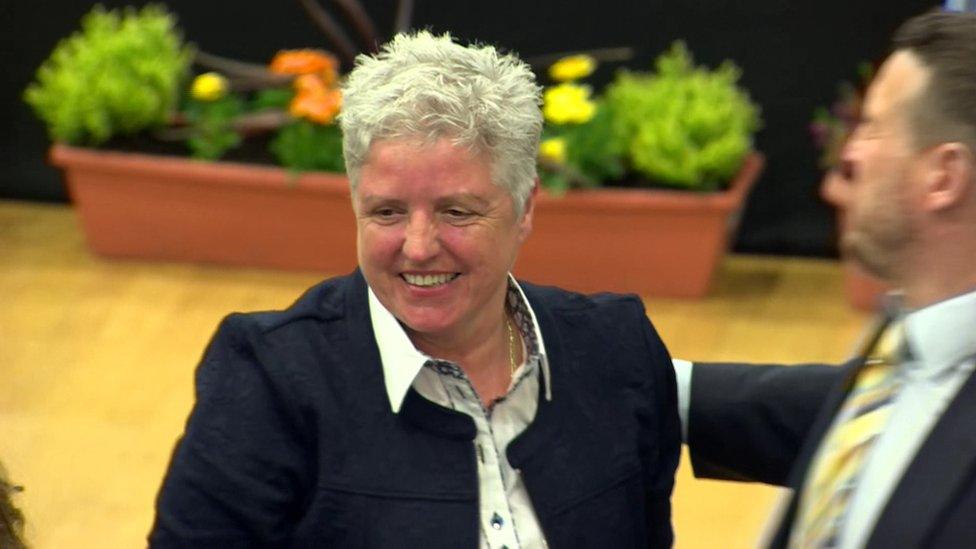Governments set out Northern Ireland talks plan
- Published
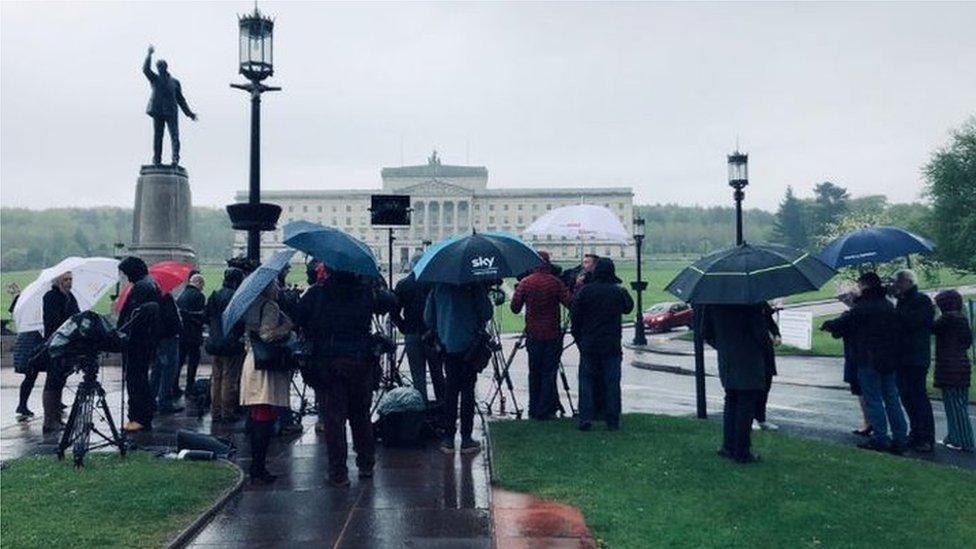
Talks got under way at Stormont on Tuesday
The British and Irish governments have set out details of how they intend to proceed with talks to restore Northern Ireland power-sharing.
In a joint statement, they said a series of working groups would be set up to deal with key sticking points.
Stormont's five main party leaders will also hold weekly meetings with the NI Secretary and Tanaiste (Irish deputy PM) to "take stock" and set the agenda.
The talks involving the NI parties and governments got under way on Tuesday.
It is the first fully-fledged talks process since negotiations collapsed in February 2018.
Northern Ireland has been without a devolved power-sharing government for more than two and a half years, after the DUP and Sinn Féin split in a bitter row.
There have been several failed talks processes since January 2017.
Last month, the British and Irish governments agreed to convene a new set of talks from 7 May, that they said should be short and focused.
In their statement issued after meeting the Stormont party leaders on Tuesday, they said the prime minister and taoiseach (Irish prime minister) would review progress at the end of May.
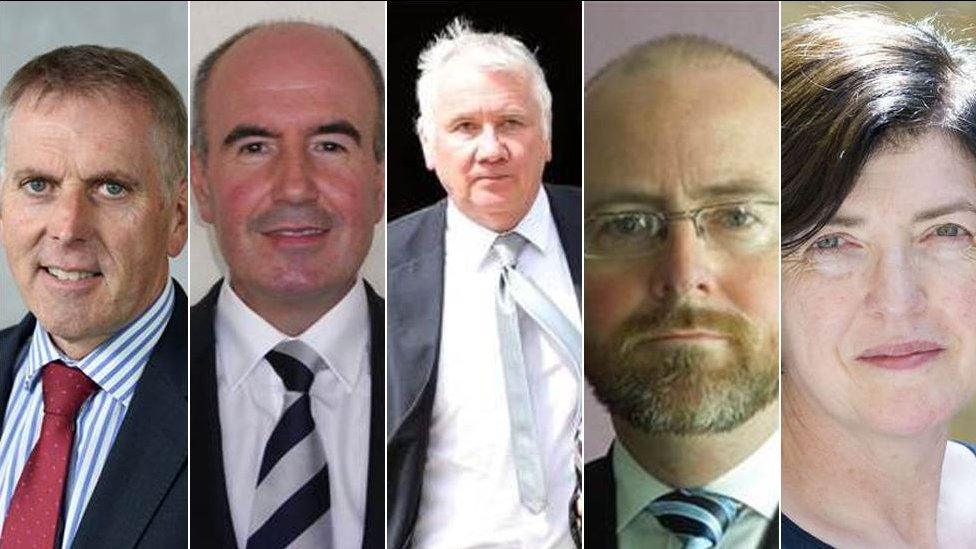
The working groups will be led by, (from left): David Sterling; Paul Sweeney; Sir Malcolm McKibbin; Hugh Widdis and Sue Gray
There will be a weekly round-table meeting involving party leaders and the working groups will deal with several key issues.
They will be made up of three representatives from each of the five parties in the talks, and representatives from the British and Irish governments will advise them.
The separate working groups will seek agreement on:
Programme for government, led by the head of the NI civil service David Sterling, looking at issues around prosperity, industrial and investment strategies in a restored executive - and improving public services
Reform of the petition of concern, led by Hugh Widdis, departmental solicitor and former assembly legal counsel
Rights, language and identity issues led by former culture department permanent secretary, Paul Sweeney
Improving the sustainability, stability and operation of the Good Friday Agreement institutions, led by ex-NI civil service boss Sir Malcolm McKibbin
Transparency, accountability and the operation of the Executive led by the permanent secretary of finance, Sue Gray
Several parties at Stormont have called for the reform of the petition of concern mechanism - it is effectively a Stormont veto which the DUP used to block same-sex marriage.
The talks were announced by the British and Irish governments after the murder of journalist Lyra McKee.
At her funeral, politicians came under pressure to solve the Stormont impasse.
The talks are beginning just days after council elections which saw a surge of support for smaller parties not aligned to either unionism or nationalism.
Most notably, Northern Ireland's fifth largest party, Alliance, saw its number of council seats rise from 32 to 53 - an increase of 65%.
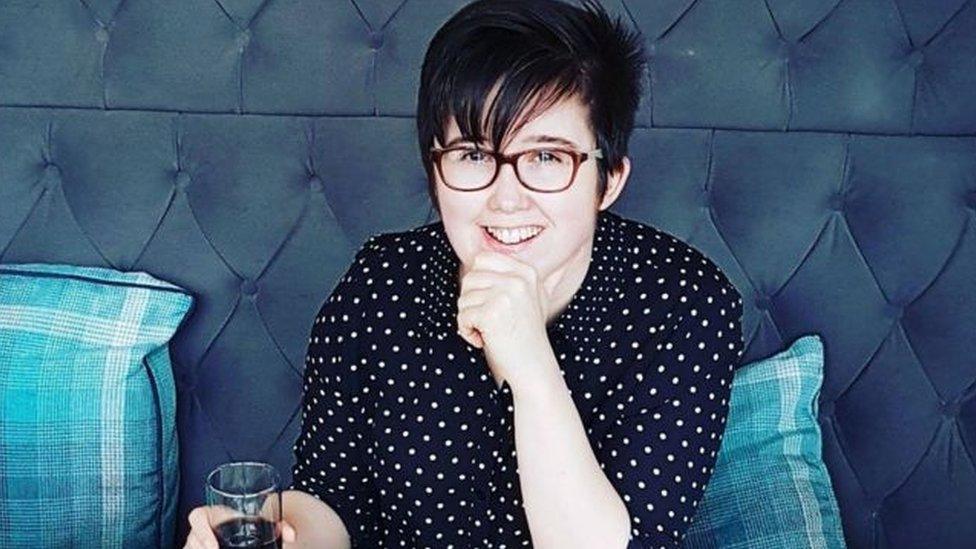
The talks were announced after the murder of journalist Lyra McKee
Speaking ahead of Tuesday's talks, DUP leader Arlene Foster said her party would go into the talks process to try to find a solution.
She said she hoped all parties would engage with a "willingness to look forward and not backwards".
Sinn Féin leader Mary Lou McDonald said her party was ready to get down to business.
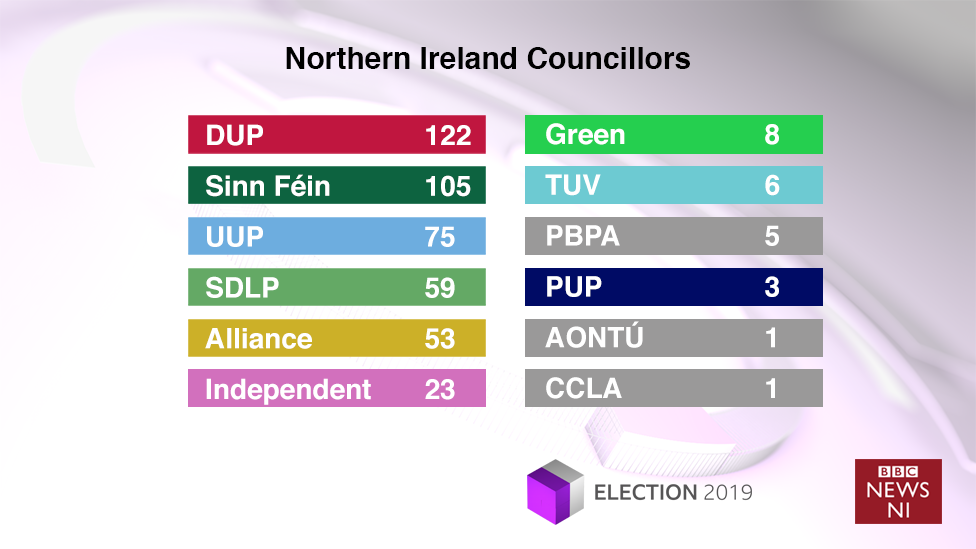
"People know what the outstanding equality issues are and they need to be resolved and they can be," she said.
Alliance leader Naomi Long said the new format provided a "short window of opportunity" for progress.
SDLP leader Colum Eastwood said: "We've all committed to power sharing, we've all committed to working together and that'll take compromise, it'll take real effort."
Ulster Unionist leader Robin Swann said: "If today is simply window dressing, we're wasting our time and we're insulting the people of Northern Ireland."
In the local government election, the Democratic Unionist Party (DUP) and Sinn Féin were again returned as the two largest parties in the council elections, but they had mixed fortunes.
The DUP lost eight of its 130 seats and, although Sinn Féin's seat count held steady at 105, there was a slight drop (0.8%) in the party's share of first preference votes.
- Published24 April 2019
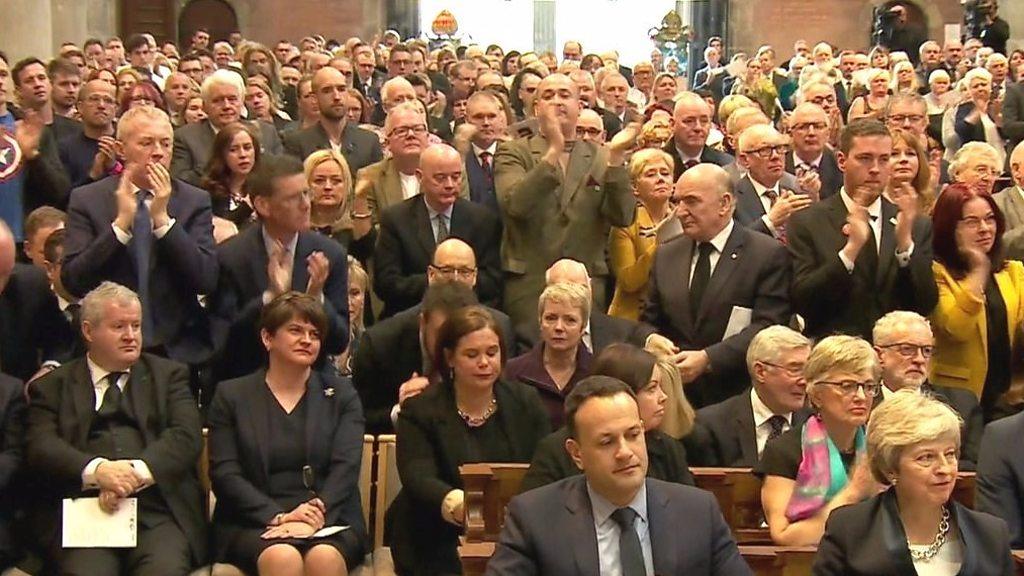
- Published4 May 2019
